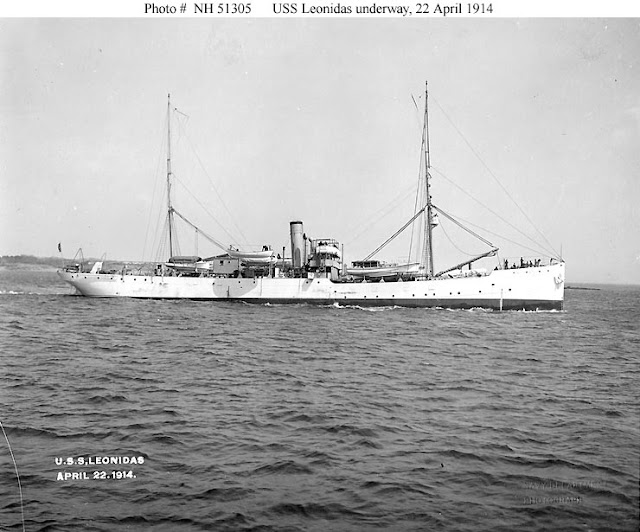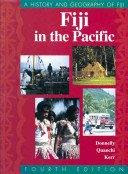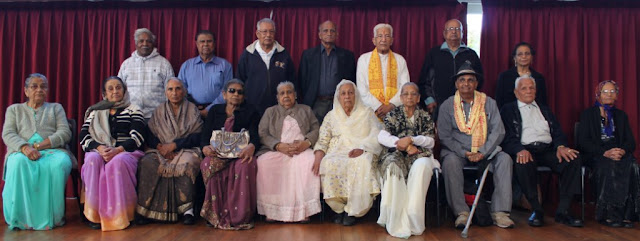Girmit
Foundation New Zealand Formed to reconnect, reclaim and restore Girmit History
Thakur Ranjit Singh,
If I ask Fiji Indians the
significance of 14th May,
they may say, yes, of course, Rabuka’s coup in 1987. No, not that. I was
thinking of something over a century before the coup – I was thinking of 14th May, 1879 when the first ship load of
Girmitiyas- Fiji’s indentured labourers – arrived in Fiji at Levuka in the
historic vessel, the
Leonidas.
I do not blame them for this as our school history fails to recognise and acknowledge this fact, which appear to have been stolen from successive Indo Fijian generations. This article is intended to enlighten and awaken the silent pride of Indo-Fijian Diaspora, and urge them to observe GIRMIT REMEMBRANCE DAY on 14 May of every year.
I do not blame them for this as our school history fails to recognise and acknowledge this fact, which appear to have been stolen from successive Indo Fijian generations. This article is intended to enlighten and awaken the silent pride of Indo-Fijian Diaspora, and urge them to observe GIRMIT REMEMBRANCE DAY on 14 May of every year.
 |
| Girmit icon of Fiji is cane -farming and farmers. This monument at entrance of Ba Town in Fiji. Long live our Girmitiyas memories, and may we never forget them |
During this Ram Naumi, as
the Hindu Indo-Fijian Diaspora in Canada, USA, Australia and New Zealand and
Fiji gathered at different Mandirs, Bhavans, temples, prayer houses and private
homes to sing Ramayan and Ram Kirtans, please ponder this issue – how come Indo
Fijians were singing Ramayan in Hindi and maintaining their culture and
religion? How come Indo-Fijian Diaspora is a pride to Hinduism among migrant
Hindus? Who do you give credit for bringing and preserving Hindi language and
Hinduism in Fiji?
On Thanksgiving Day,
Americans think of and honour those who sacrificed for America in creating a
new homeland. On ANZAC Day (Australia and New Zealand Army Corps) Kiwis and
Aussies think of their soldiers who fought for their countries and gave their
lives. On Waitangi Day, New Zealanders mark that as a nation-building day. Then
why cannot we, Girmitiya descendant Indo-Fijians, set aside at least one day in
a year to think and honour those who sacrificed their life for us and gave us this
better life than they ever dreamed of?
The tragedy of Indo-
Fijians is that they lack selfless political or other forms of benevolent exemplary
leadership. We have our so called crusaders of cane farmers and trade unionists,
multitudes of qualified academics and professors. We have multitudes of
prosperous Indo-Fijian lawyers made rich by a bickering Indo-Fijian community,
yet how many have got the guts or human conscience to take the fight to seek
redress from those who wronged us?
 |
| Girmitiyas- Lest we forget them. Let us remember them for their vision, sacrifices and sufferings. |
What I suggest is that we
need to tell our children and grandchildren about the stories of Girmit so that
they know where they have descended from and how full of suffering has been those
Girmit journeys in past centuries.
To realise this dream,
Auckland New Zealand Indo Fijians have taken steps to reconnect, reclaim and
restore Indo-Fijian history.
FIJI GIRMIT FOUNDATION NEW ZEALAND has been formed
to regularly organize commemoration of Girmit in New Zealand every year. The Foundation Truistees and office bearers are: Former Deputy
General Manager of Fiji Broadcasting Commission, Pundit Devakar Prasad
(Chairperson), Thakur Ranjit Singh, (Secretary), Krish
Naidu (Treasurer), former parliamentarians Master Shiu Charan and Sardar Harnam
Singh Golian, and author of “Tears in Paradise”
and former Ba Town Clerk, Rajendra Prasad.
May 14 is a significant day
in the history of Indo-Fijian community, as it marks the arrival the first ship
of Indian indentured labourers (Girmitiyas) in Fiji in 1879. It followed 86
other ships that brought 60,553 Girmitiyas to Fiji. It is the aim of the Fiji
Girmit Foundation New Zealand to reconnect, reclaim and restore Indo-Fijian
history, which is almost unknown to the new generation of Indo- Fijian
community worldwide.
 |
| SARDAR HARNAM SINGH GOLIAN, former Fiji Parliamentarian, a businessman and a community leader in Auckland in another Founding Trustee of Fiji Girmit Foundation of NZ. |
The day’s programme will
remember suffering, sacrifices and vision of our forbears through oratory,
poems, music and tales of the past. This will be a journey through memory lane
which will provide exposure to a history that is dormant and yet it is a
fascinating history of suffering, struggle and sacrifice.
It is a fervent hope of the
Foundation that such activities would assist in restoration of Indo-Fijian history;
not only in New Zealand, but everywhere Indo-Fijians are settled. Hence, the
theme for this year’s commemoration is:
“Ek Shaam Girmiyon ke Naam – (An afternoon dedicated to the memory of
Indentured Labourers –Girmitiyas): RECONNECTING, RECLAIMING AND RESTORING
INDO-FIJIAN HISTORY
The Foundation intends to
strengthen our unique Indo-Fijian culture, language, customs and traditions to
ensure that our children remain connected to the jewels of their inheritance.
Help of Radio stations and other media have been sought to reach people. It is
hoped, in a small way, the initiative, foresight and vision of Aucklanders are
going to inspire our Indo Fijian Diaspora in Canada (Vancouver, Surrey,
Calgary, Toronto etc), USA (San Francisco, Sacramento, Modesto Hayward etc),
Australia (Brisbane, Sydney, Melbourne etc) and even in Fiji to appreciate that
we get organised and tell our new generation the tales of Girmit that history
has failed to acknowledge.
[About
the Author: Thakur Ranjit Singh is a journalist, a blogger, a media
commentator and former Publisher of Fiji’s Daily Post. He is the Secretary of
Fiji Girmit Foundation New Zealand. He runs his blog site: FIJI PUNDIT]























